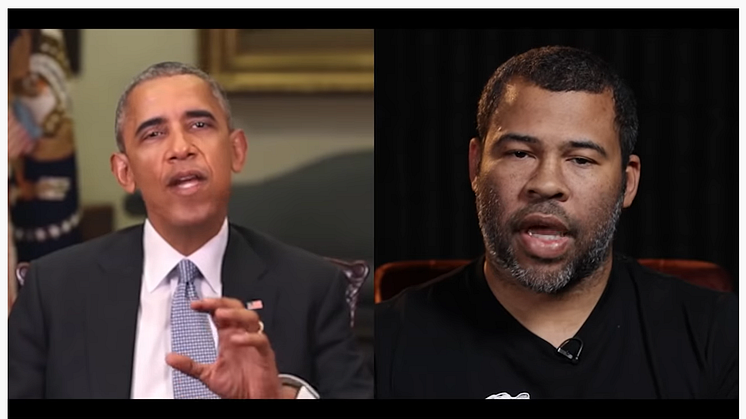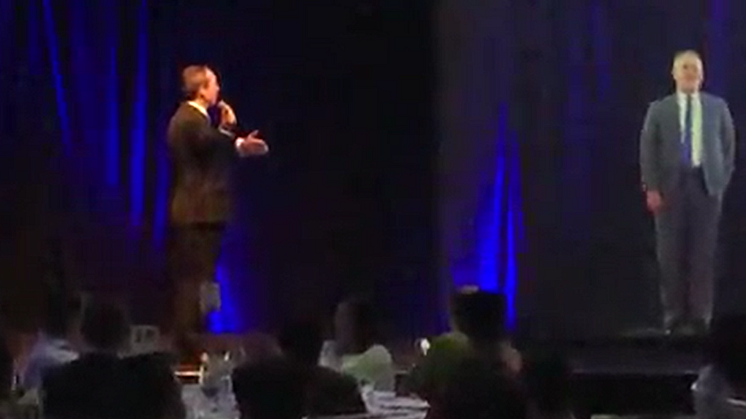
Blog post -
2020 Foresight: Can you prove your CEO didn’t say this?
Read the headline again. Isn’t it crazy that in the 2020s your corporate communications team is going to have to grapple with such strange media enquiries.
My personal prediction is you’re going to spend an increasing amount of time debunking deep fake videos. The apps to create such videos are already available.
Worse, you are going to field calls from pranksters extorting ransoms in exchange for not releasing such videos.
A new form of cyberthreat is emerging, where you receive a call from a bot pretending to be your boss, instructing you in all sincerity to make a transfer or take some other form of action which would be to the detriment of your company, as Symantec’s CTO Hugh Thomson describes in this CNBC interview.
In the short term, you might insist a caller enters a code into their phone to prove they are who they say they are, much like you use your phone to key in 2FA codes to approve banking transactions. But what if that code is hacked?
Before long, digital tags will be able to prove a video is genuine (or prove that a video without such a tag is fake) much like you can already see a blue tick on confirmed celebrity Twitter accounts. Maybe we will even see a blockchain, or facial recognition solution (we are, in fact, working on one).
Of course, the reverse might also happen: the temptation to declare as “deep fake” a regrettable gaffe your CEO really did make, much like Trump dismisses uncomfortable and undisputable facts as fake news.
Which brings me to another prediction for the 2020s: the rise of guerrilla journalism. Broadly, mainstream media have been doing it tough for more than a decade, as free content online has made consumers reluctant to pay for news. In many markets, Google and Facebook now earn around 80 cents in every advertising dollar spent, leaving traditional print media and broadcasters, with their high fixed costs and the expensive burden of actually producing the content that appears in Google search results and Facebook feeds, to share the remaining 20 cents.
At the same time, news consumers can’t tell the difference between fact and fake. In the 2020s, this will lead to the rise of the super-blogger – a one-person media organisation. Fact is, not every journalist employed by a traditional media outlet produces Pulitzer prize winning journalism all year round – especially if all they’re doing is rewriting press releases. But Pulitzer prize winners can come from anywhere. They won’t compete with Google for advertising revenue; Google will be their source of revenue!
In the 2020s, the super-blogger guerrilla journalist who stops at nothing to get Pulitzer prize winning stories and to earn the advertising revenue that goes with it will be a far bigger counterpoint to stage-managed media messaging than the lax complicity that characterises much of the media/corporate relationships in Southeast Asia today.
You already know it’s much harder to get media coverage from the shrinking pool of journalists. Those that remain want authentic, real stories rather than fluff pieces. Meantime, NGOs are taking on the watchdog role previously carried out by journalists. Your spokespeople will need to be ready to deal with activists and crusaders.
The days are gone when you can pivot to your key messages and expect your audience to readily follow you. They don’t. They’ve gotten wise to when you are pivoting. They spot a canned response when they hear one. You must build your awareness of the new media environment, and know how to deal with it. Our media skills workshops coach you and your participants in new, traditional, social and guerrilla media.
Do you have 2020 Foresight?
The 2020s. If you’re like me, you would have considered this decade to be too far off to contemplate. Long-term government planning reports talked about the 2020s. Authors set their science fiction novels in the 2020s. The 2020s were a mirage.
Yet here we are, just weeks away before we catch up with the future.
In this series I look at five key trends likely to shape the new decade.
- Climate change and the switch to live video and webcasts – But will anyone pay attention
- How to be the best human you can be in an AI world – You can't be anyone you want to be, but you can be the best of who you already are
- Can you prove your CEO didn’t say this? – Deep fakes, guerrilla media, and the blurred lines between fake and real
- The rise of Megadata – If you thought death by PowerPoint was bad now, just wait until you drink from the data hosepipe
- New threats make crises inevitable – Drones, cyberattacks, climate change all make for the crises of the future
Talk to us about how to invest your remaining 2019 training budgets with 2020 foresight.



